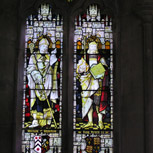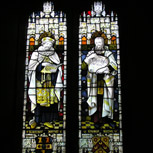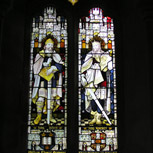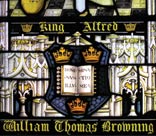
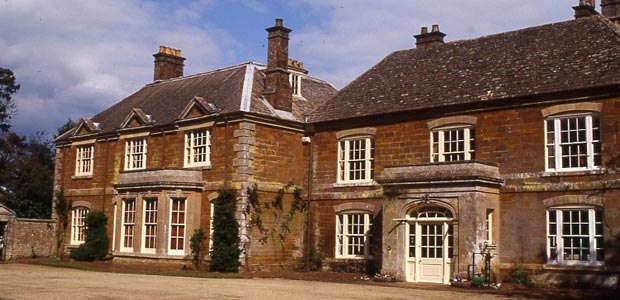
There was close association
between Victorian education and social class. Residential private schools
were ‘the bedrock of the Victorian middle classes’. From 1854
to 1882 Rev’d William T. Browning ran a preparatory boarding school
for boys at the manor house which he tenanted. He took an active roll in the
parish, being churchwarden for twelve years. He was keen on foxhunting and
he was a board member of the village school but he never became rector of
the parish.
Many of the school pupils progressed on to Eton College. Records show that
there were 34 boys boarding at the manor in 1881, but as with the rectory
school, these were not local children. We can only speculate as to how the
‘sons of the establishment’ settled in to what was then a fairly
isolated village and how they were accepted by the villagers. Perhaps there
was a rural equivalent to the ‘town and gown’ situations found
in larger academic communities.
Rev’d Browning’s former pupils subscribed to the three memorial
scholastic windows in the north aisle of the village church.
